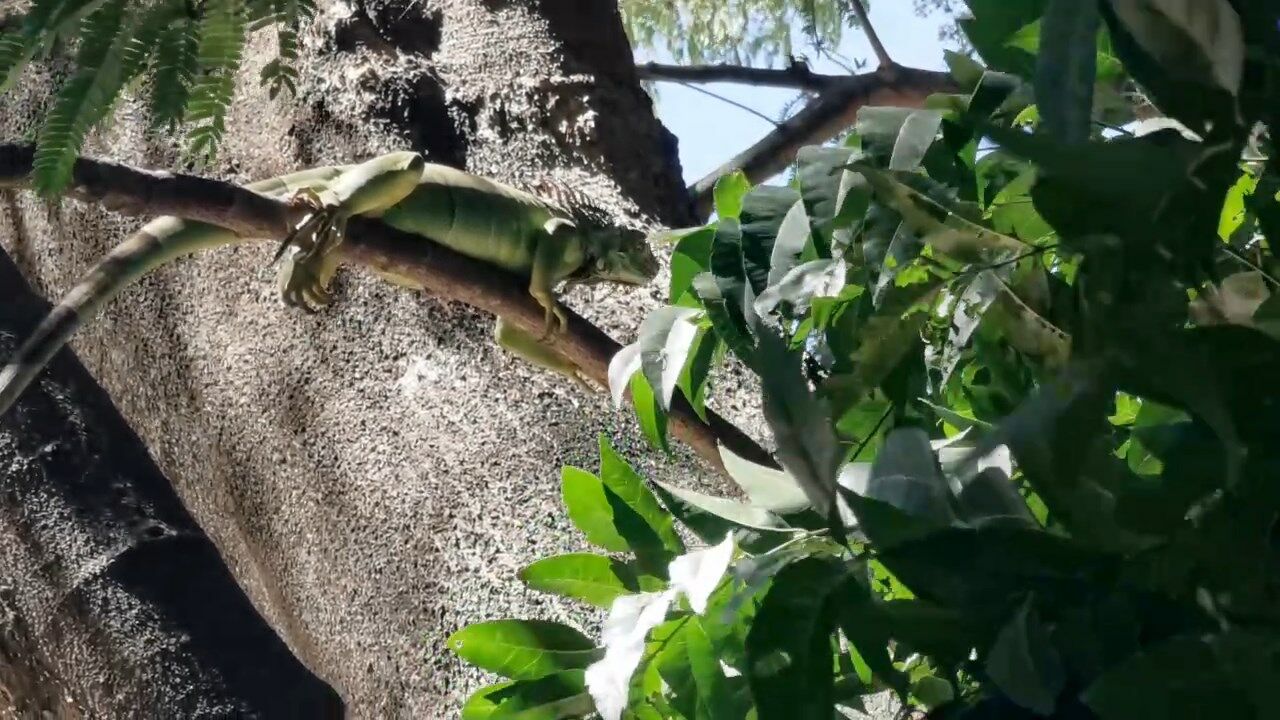Lop Buri residents bite back, seek authority action as iguanas wreaks havoc on farms

Residents in the central province of Lop Buri are urging authorities to intervene as the population of iguanas in the region has surged dramatically. The animals have reportedly bitten a resident and caused significant damage to plantations and agricultural produce.
Channel 3 reported that a master’s degree student conducted a study in the Khao Phaya Doen Dong community in Lob Buri province and discovered a number of iguana populations in the area. The reptiles in the area are the common green iguana which is considered an alien species in Thailand.
According to a study report, the iguanas are causing changes to the ecosystem while also consuming local produce. Some residents have abandoned their land after losing all of their produce to the iguanas, and some members of the community highlighted that one local had been bitten by an iguana.
Channel 3 interviewed locals in the area about the problems they face. A 77 year old woman named Chaliao Kongjai said that she first encountered iguanas in the area ten years ago but their number has increased over the past few years.
Chaliao claimed that a businessman, who moved to Lob Buri from Bangkok 10 years ago, released his pet iguanas into the public area.
Chaliao said the iguanas ate most of the agricultural produce, especially long beans and cassava. Locals filed a complaint to the authorities but they were unable to catch them. She and many people left their land plots empty and could not grow anything while some others sought plants that iguanas did not like.
Iguanas threat
Chaliao stated that the iguanas were threats to their plantation but she had never seen them bite anyone.
An 80 year old man named Somsak stated that iguana bites were uncommon. He knew only of one incident when a drunk man played with an iguana and lost two fingers after being attacked. No other locals, to his knowledge, were attacked by the animals, they only lost agricultural products to them.
Somsak said the authorities urged locals to kill them but they were afraid to do so. Somsak hoped that the relevant authorities would get rid of the animals so locals could start growing their crops again.
According to the Department of Medical Sciences, reptiles, including iguanas, are a breeding ground for germs and bacteria, especially salmonella, which can cause diarrhoea. If locals consume vegetables or water containing iguana waste, they could be exposed to the germs.
After the issue came to public attention, authorities from the Department of National Parks, Wildlife and Plant Conservation (DNP) visited the area and captured two iguanas for further testing.
The authorities acknowledged receiving complaints about the issue for over a year but confessed to lacking a definite solution and the budget to address it. Officials plan to collaborate with exotic animal enthusiasts and volunteers to capture the iguanas for redistribution while exploring alternative measures to mitigate the population.
Latest Thailand News
Follow The Thaiger on Google News:


























